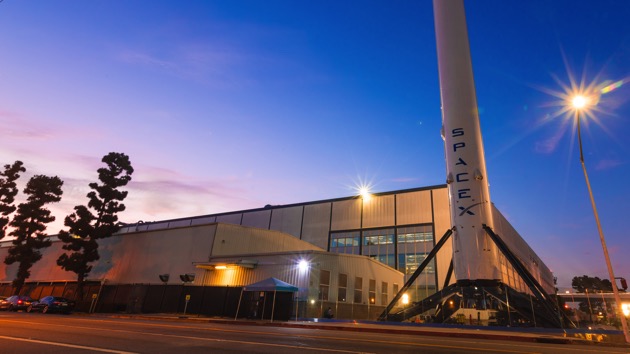Jorge Villalba/iStock(COCOA BEACH, Fla.) — SpaceX launched 60 more satellites Monday as part of CEO Elon Musk’s “Starlink” mission to bring high-speed internet to large, remote swaths of the world.”Enabled by a constellation of low Earth orbit satellites, Starlink will provide fast, reliable internet to populations with little or no connectivity, including those in rural communities and places where existing services are too expensive or unreliable,” SpaceX said in a statement announcing the launch.The launch began at 9:56 a.m. ET on Monday at Cape Canaveral Air Force Station in Florida and was livestreamed on SpaceX’s website. The satellites launched from a SpaceX Falcon 9 rocket.
Approximately an hour after liftoff, SpaceX confirmed that all 60 Starlink satellites successfully deployed.
Successful deployment of 60 Starlink satellites confirmed! pic.twitter.com/bpBqO9oYR3
— SpaceX (@SpaceX) November 11, 2019
Monday’s satellite launch is the “heaviest payload to date, first re-flight of a fairing, and first Falcon 9 to fly a fourth mission,” the company said in a tweet prior to the launch.
Starlink vertical on the pad pic.twitter.com/WuiB1piKcK
— Elon Musk (@elonmusk) November 11, 2019
The Starlink mission aims to provide internet in the northern U.S. and Canada in 2020 and expand to “near global coverage of the populated world by 2021,” according to SpaceX’s website.
Sending this tweet through space via Starlink satellite ?
— Elon Musk (@elonmusk) October 22, 2019
Shortly after the May launch, the American Astronomical Society issued a statement of concern over “the impending deployment of very large constellations of satellites into Earth orbit.””The number of such satellites is projected to grow into the tens of thousands over the next several years, creating the potential for substantial adverse impacts to ground- and space-based astronomy. These impacts could include significant disruption of optical and near-infrared observations by direct detection of satellites in reflected and emitted light; contamination of radio astronomical observations by electromagnetic radiation in satellite communication bands; and collision with space-based observatories,” the statement said.
Any thoughts on starlink satellites causing space debris and lighting polluting the sky according to what some people are saying?
— Varun Ramesh ? (@varunversion1) May 27, 2019
Musk has responded to the claims on Twitter, saying, “Starlink won’t be seen by anyone unless looking very carefully & will have ~0% impact on advancements in astronomy.”Copyright © 2019, ABC Audio. All rights reserved.












